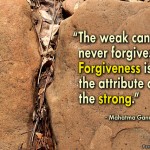
Prayer is focused thought that moves energy.
At least, that’s my current definition.
Beyond that, I have no idea how prayer works. Only that it does.
I asked in a blog last week how you pray if you consider yourself spiritual but not religious. I’m grateful for your replies, and I’m going to ask here for your further thoughts.
Prayer, of course, takes many forms. And how you pray depends on who or what you want to connect with.
The way you pray depends on the way you think about God and yourself.
It has to.
THREE FACES OF GOD
This all began to make sense to me when I discovered Ken Wilber’s Three Faces of God.
Very briefly, Wilber, an American philosopher and author, says the concepts of God in all religions boil down to three:
- God within you
- God in relationship to you
- God as All That Is
Most religions pick one or two and disdain the others. Wilber suggests we’re missing out if we’re not engaged with all three.
And that might mean we need to rethink prayer.
The standard definition of prayer is limited to God in relationship. You pray TO God (or whatever you choose to call it) with your requests.
But what if you have begun to see yourself as divine? Not just a spark of divinity somewhere within a lump of flesh, but yourself as an actual expression of God on the earth, made in the image and likeness, with all the attributes of God in potential within you.
Then, do you pray to yourself? How do you pray?
And if you see God as All That Is – not just everything in nature, but in people, events and outcomes – how do you pray?
I mean, people typically pray for physical healing or harmony in relationships or more money. But if everything is God, then isn’t it already perfect? Why ask for any changes?
OLD MAN IN THE SKY
In the interest of full disclosure, I will confess I’ve been guilty of what Wilber describes, favoring some versions of God over others.
I am convinced every person is divine, no matter how he or she might be behaving in the moment. I also believe God is in all things.
That’s two out of three.
Yet I developed those ideas at the cost of the third, God in relationship.
I gratefully gave up the idea that God is a white-bearded man in the sky, watching and judging my every move.
But that left me without someone to talk to.
Trying to immerse myself in oneness like my Buddhist friends didn’t quite work. I filled the gap in relationship with angels and guides and ascended masters, who seemed to be more accessible than All That Is.
And for a while, I mistakenly suggested that other people should give up their relationship with God, too, because God is not a Supreme Being who intervenes supernaturally in our lives.
I still don’t believe in such a God.
But I do believe in what we call prayer. It’s the connection all humans long for. We seem to be wired for prayer.
And today I would suggest that other people connect in any way that works for them.
SO HOW TO PRAY?
There’s no wrong way to pray, of course, but if your views about God are shifting, your prayers might need to change, too.
If you’d like to know more about praying from the divine within or immersed in the One Presence, you might like a book called How to Pray Without Talking to God by Linda Martella-Whitsett.
I also like a little book called Five Steps to Freedom that seems to encompass the Three Faces of God in its formula for prayer:
- Acknowledge the oneness of all things
- Recognize the divine within
- Affirm the reality of whatever you want, even if you can’t see it yet.
- Give thanks.
- Release the outcome, knowing all will be well.
On the other hand, the brilliant and hilarious writer Anne Lamott simplifies this discussion by naming only three essential prayers: Help, Thanks, Wow.
So again I ask, How do you pray?
Has your understanding of God changed over the years? Has that affected the way you pray, or what you think prayer is?
I would be honored if you’d share with me how you approach prayer, given your current concept of what we call God.
















